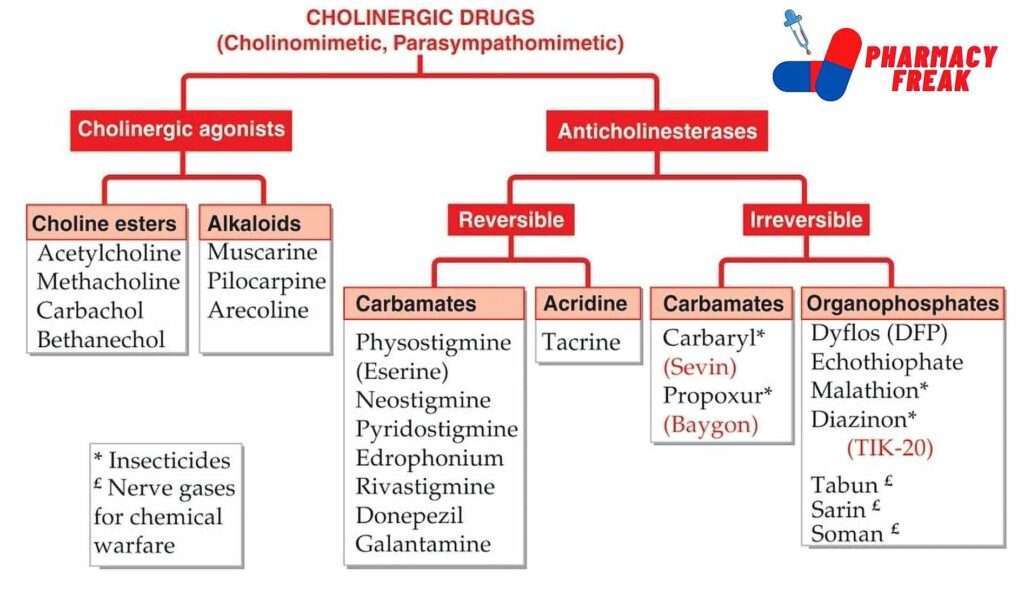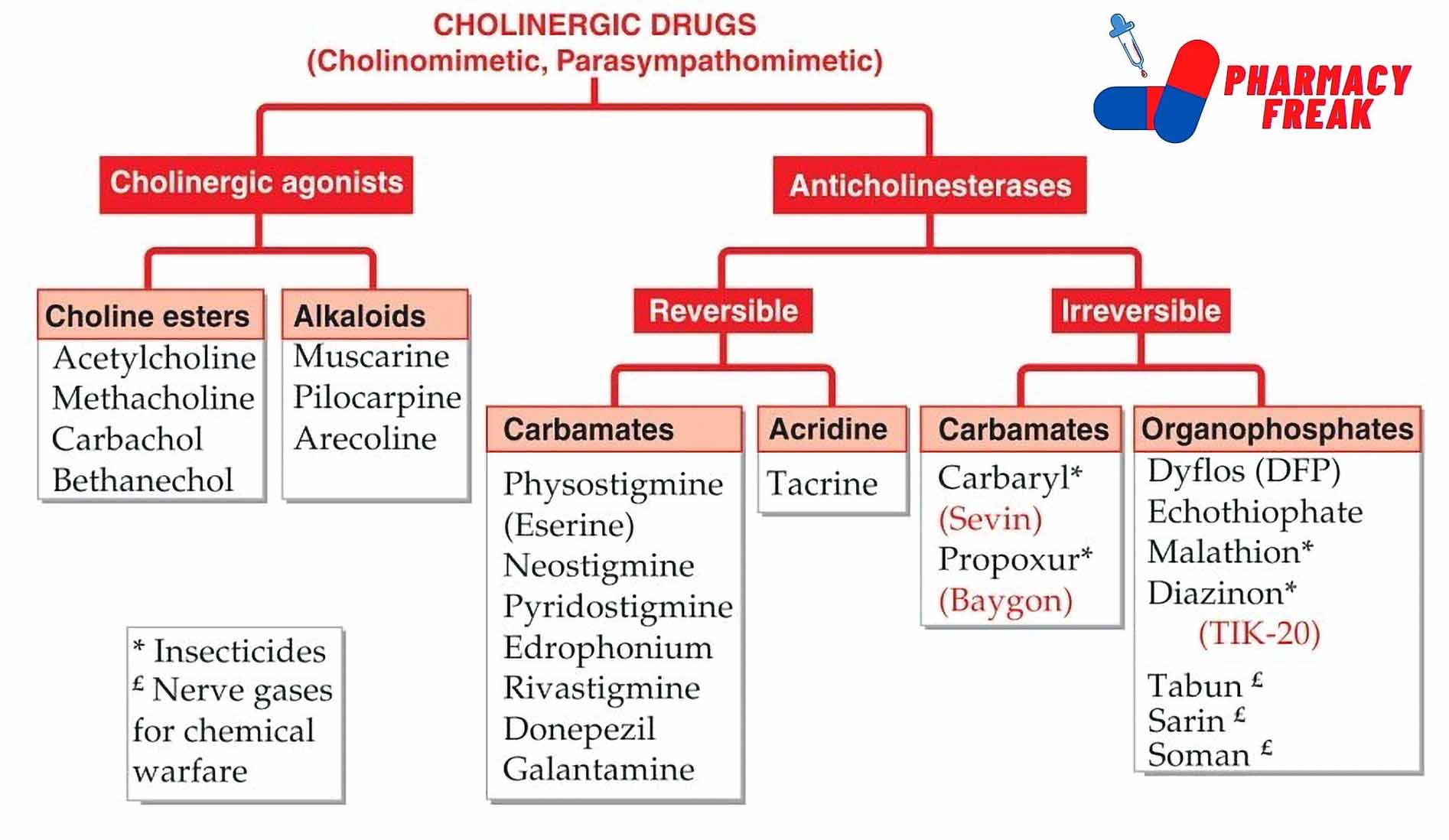Cholinergic drugs
Cholinergic drugs refer to medications that work by enhancing the effects of the neurotransmitter acetylcholine in the body. These drugs have a range of effects, including increasing muscle strength, reducing inflammation, and enhancing cognitive function.
Uses
Cholinergic drugs are used to treat a variety of medical conditions, including:
- Alzheimer’s disease
- Myasthenia gravis
- Glaucoma
- Urinary incontinence
- Overactive bladder
Classification

CHOLINERGIC DRUGS (Cholinomimetic, Parasympathomimetic)
- Cholinergic agonists
- Choline esters– Acetylcholine, Methacholine, Carbachol, Bethanechol
- Alkaloids– Muscarine, Pilocarpine, Arecoline
- Anticholinesterases
- Reversible
- Carbamates-Physostigmine (Eserine), Neostigmine, Pyridostigmine, Edrophonium, Rivastigmine, Donepezil, Galantamine
- Acridine-Tacrine
- Irreversible
- Carbamates-Carbaryl* (Sevin), Propoxur* (Baygon)
- Organophosphates– Dyflos (DFP), Echothiophate, Malathion*, Diazinon*, (TIK-20), Tabun £, Sarin £, Soman £
- Reversible
Reference
- CLASSIFICATION OF DRUGS- KD Tripathi
- National Library of Medicine – Cholinergic Medications (Ramya S. Pakala; Kristen N. Brown; Charles V. Preuss.)

I am a Registered Pharmacist under the Pharmacy Act, 1948, and the founder of PharmacyFreak.com. I hold a Bachelor of Pharmacy degree from Rungta College of Pharmaceutical Science and Research. With a strong academic foundation and practical knowledge, I am committed to providing accurate, easy-to-understand content to support pharmacy students and professionals. My aim is to make complex pharmaceutical concepts accessible and useful for real-world application.
Mail- Sachin@pharmacyfreak.com

